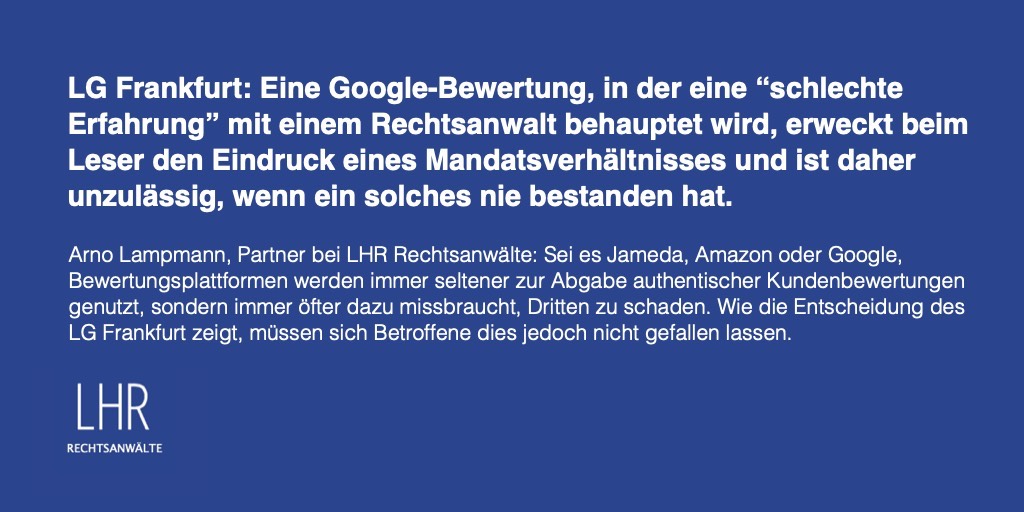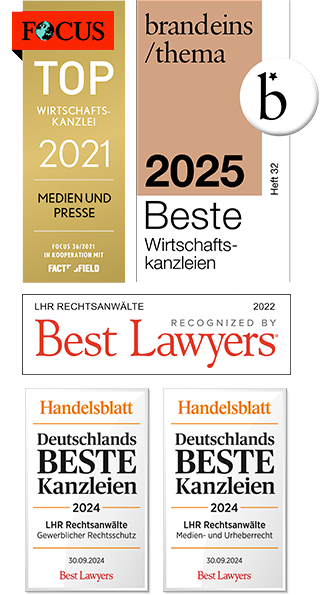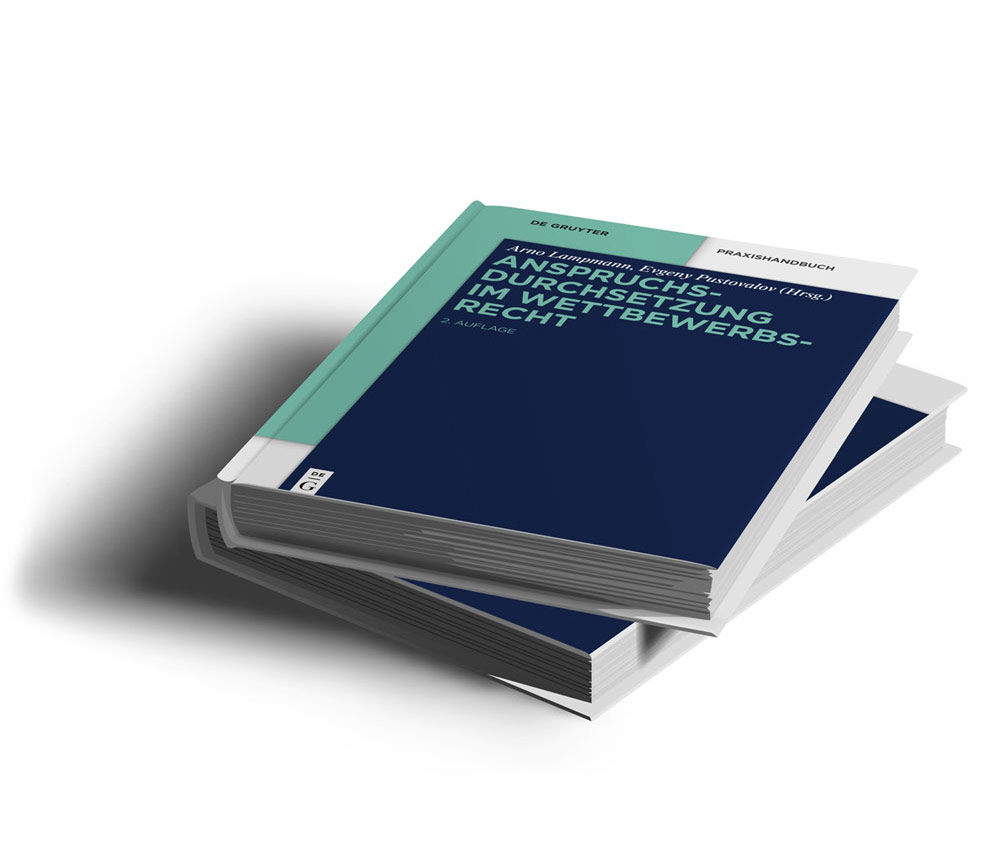Frankfurt Regional Court prohibits fake client rating in lawyer’s Google profile

The Regional Court of Frankfurt (LG Frankfurt, Beschluss v. 20.12.2019, Az. 2-03 O 532/19) has issued a temporary injunction against a management consultant and coach.
This prohibits him from claiming a “bad experience” with a lawyer in a review on the “Google My Business” profile without ever having been a client of the lawyer. In the event of non-compliance, a fine of up to €250,000 or up to six months’ imprisonment may be imposed. The amount in dispute was set at €10,000.
The decision is not legally binding and was issued without an oral hearing, but taking into account an extensive protective brief. The defendant now has the option of lodging an objection or clarifying the facts of the case in the main proceedings.
Internet ratings as a defamation tool
The background to the preliminary injunction proceedings was a legal dispute between the management consultant and coach and competitors whom he had publicly defamed and disparaged under the guise of “journalism”. The consultant subsequently exploited his “victory” in the first instance not only for publicity purposes, but also extended his public attacks to the competitor’s legal representative.
He rated him negatively on his “Google My Business” profile and claimed in the associated comment that he had had “bad experiences” with the lawyer due to insufficient knowledge in certain areas of law. This gave readers the impression that the defendant had been represented by the claimant, although he had never been a client of the claimant, but on the contrary had been on the “opposite side”.
In addition to the mere untruthfulness of the impression created by the assessment, the fact that legal services are services of a higher nature pursuant to § 627 BGB, for which a special relationship of trust is required and the readers of the assessment therefore had to assume that he maintained or had maintained such a relationship of trust with the defendant in the past, which represented an additional impairment of reputation for him due to the dubious reputation that the defendant has in the public.
“Secret” correction of the valuation did not help
After the applicant wrote to the defendant out of court and gave him the opportunity to avoid legal proceedings by submitting a cease-and-desist declaration, the defendant quickly and secretly changed the comment in the review, but did not comment to the applicant. On his Facebook profile, he simultaneously informed his “fans” of the review and the warning.
Since the defendant in particular did not issue a cease-and-desist declaration, the interim proceedings became necessary, in the context of which the Regional Court of Frankfurt followed the opinion of the applicant that the statements in the evaluation with regard to the question of an existing client relationship were in any case ambiguous statements and that the “secret” correction of the misleading statements could not be understood as a serious clarification, at least in view of the ongoing insults, and therefore could not eliminate the risk of repetition.
In addition to the claim for injunctive relief, the applicant is entitled to claims for removal and damages.
Lawyer Arno Lampmann from the law firm LHR:
Be it Jameda, Amazon or Google: review platforms are being used less and less to provide authentic customer reviews and are increasingly being misused to harm third parties. However, as the decision by Frankfurt Regional Court shows, those affected do not have to put up with this.
(Disclosure: Our law firm represented the applicant).

